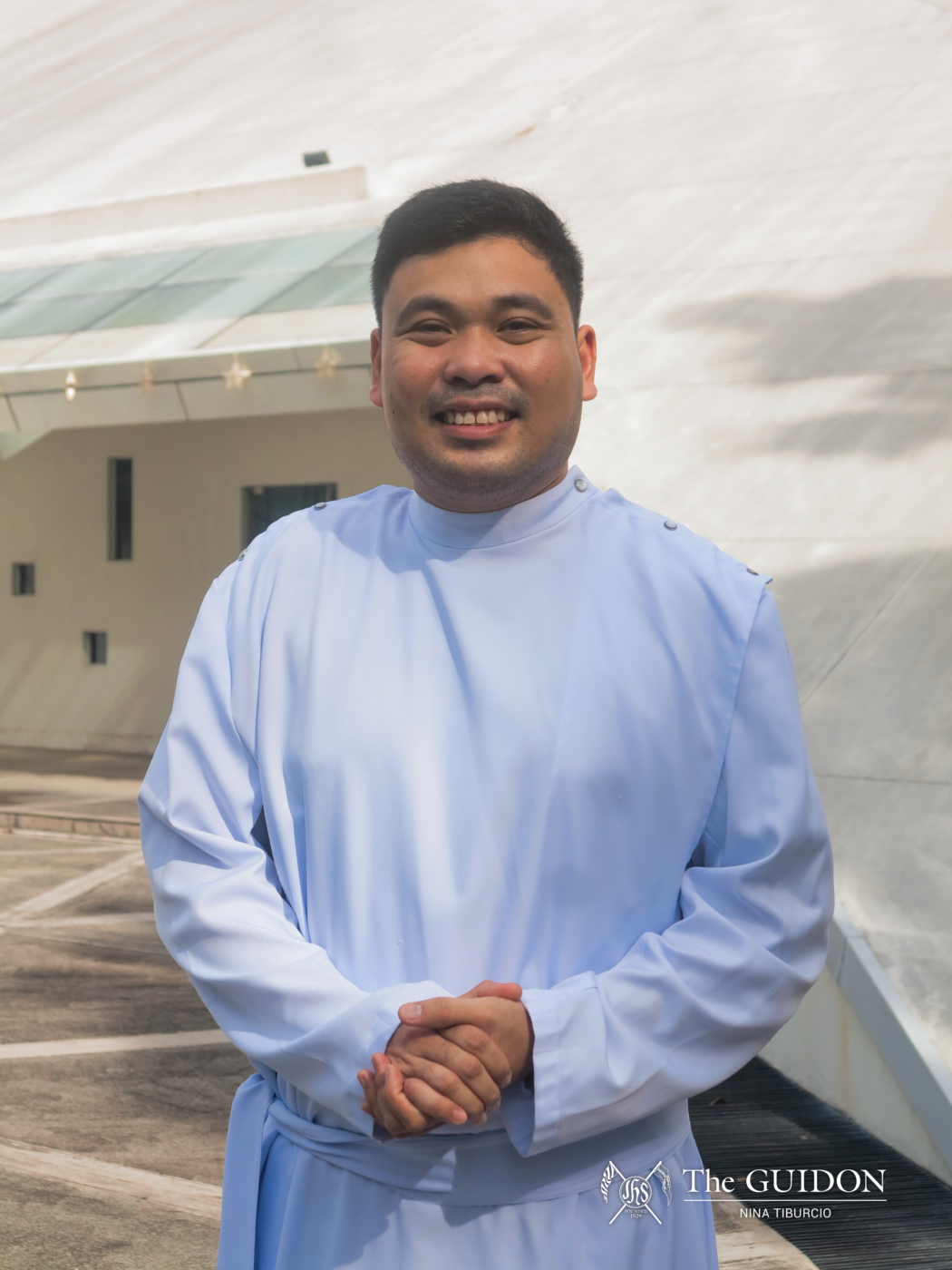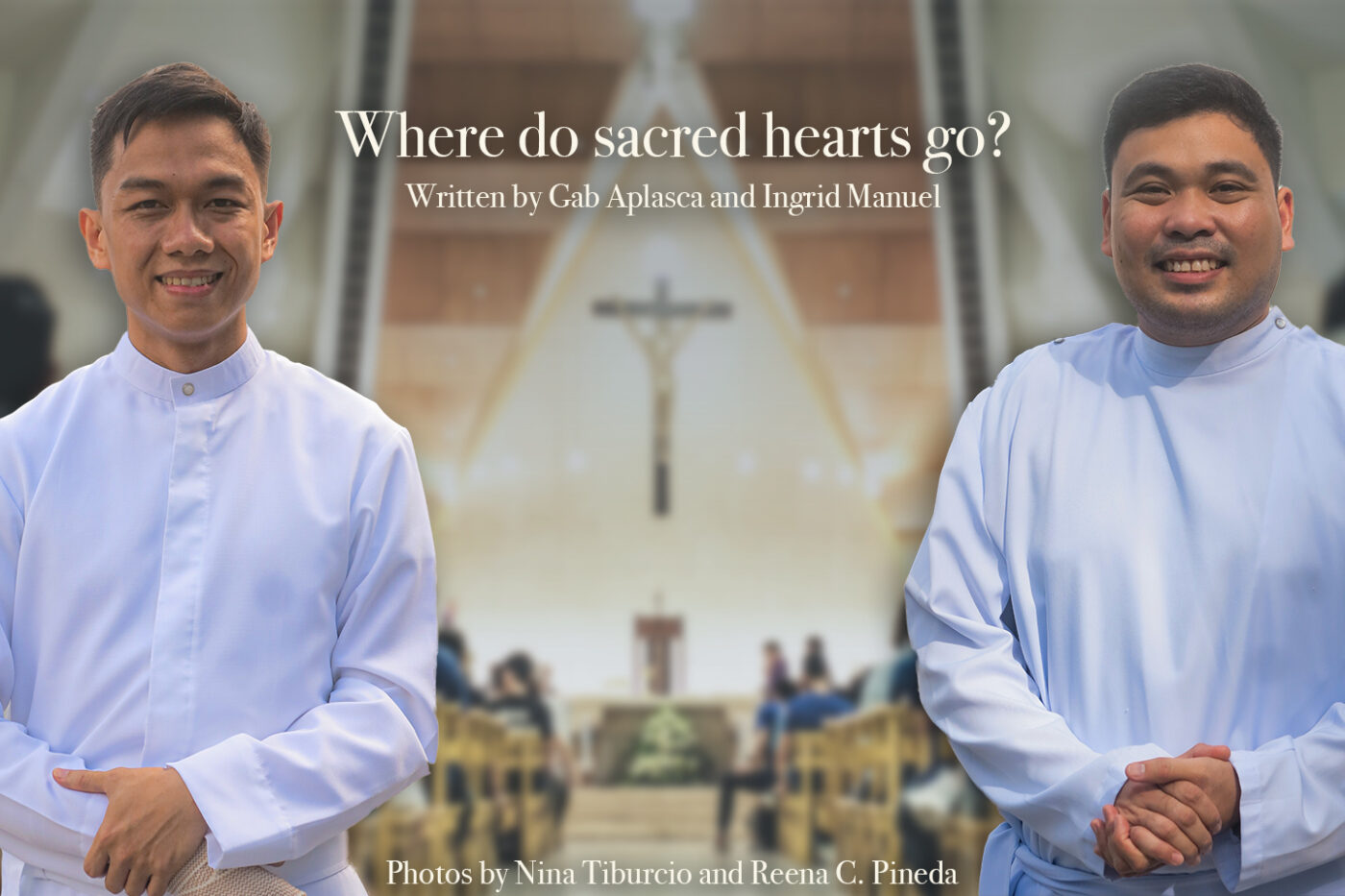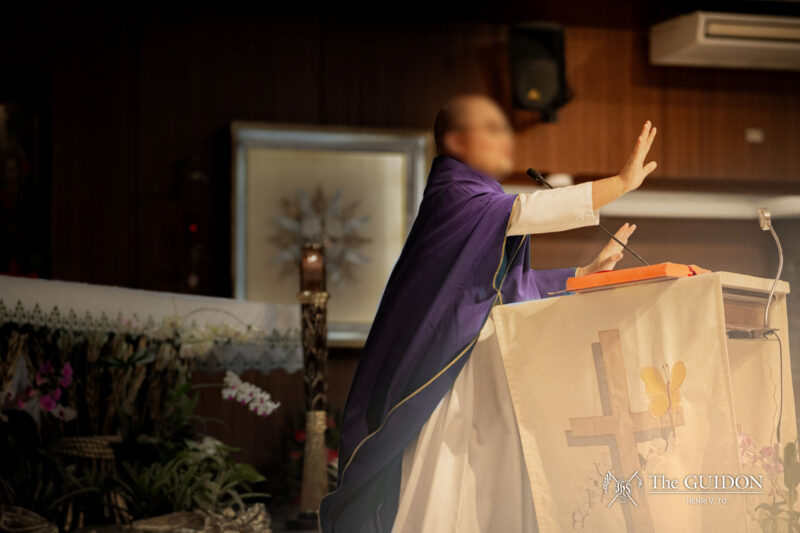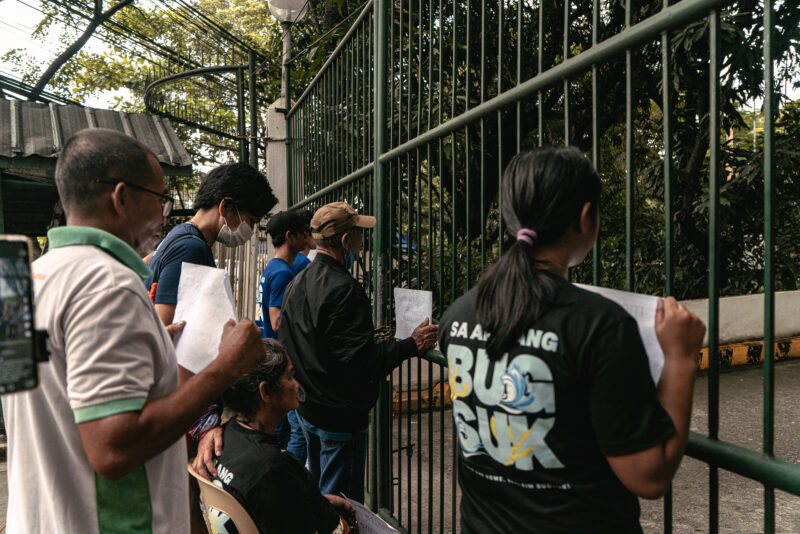Love knows no linear way to reveal itself. The Jesuit seminarians of the Ateneo de Manila University remember this all too well as they recollect different kinds of love throughout their life.
ONE STEP.
And another, then another.
Each stride to unearth love comes as a series of encounters in our lives. From various people and conversations, every little experience in life has given us a glimpse into love, deepening our understanding of its emotional intricacies each time.
Undoubtedly, the stories from love songs, books, and movies stem from the experiences of real people. Even the Jesuit seminarians of the Ateneo de Manila University are no strangers to the very thing we call love, as it will always stand to be universal—yet altogether unique—from all else.
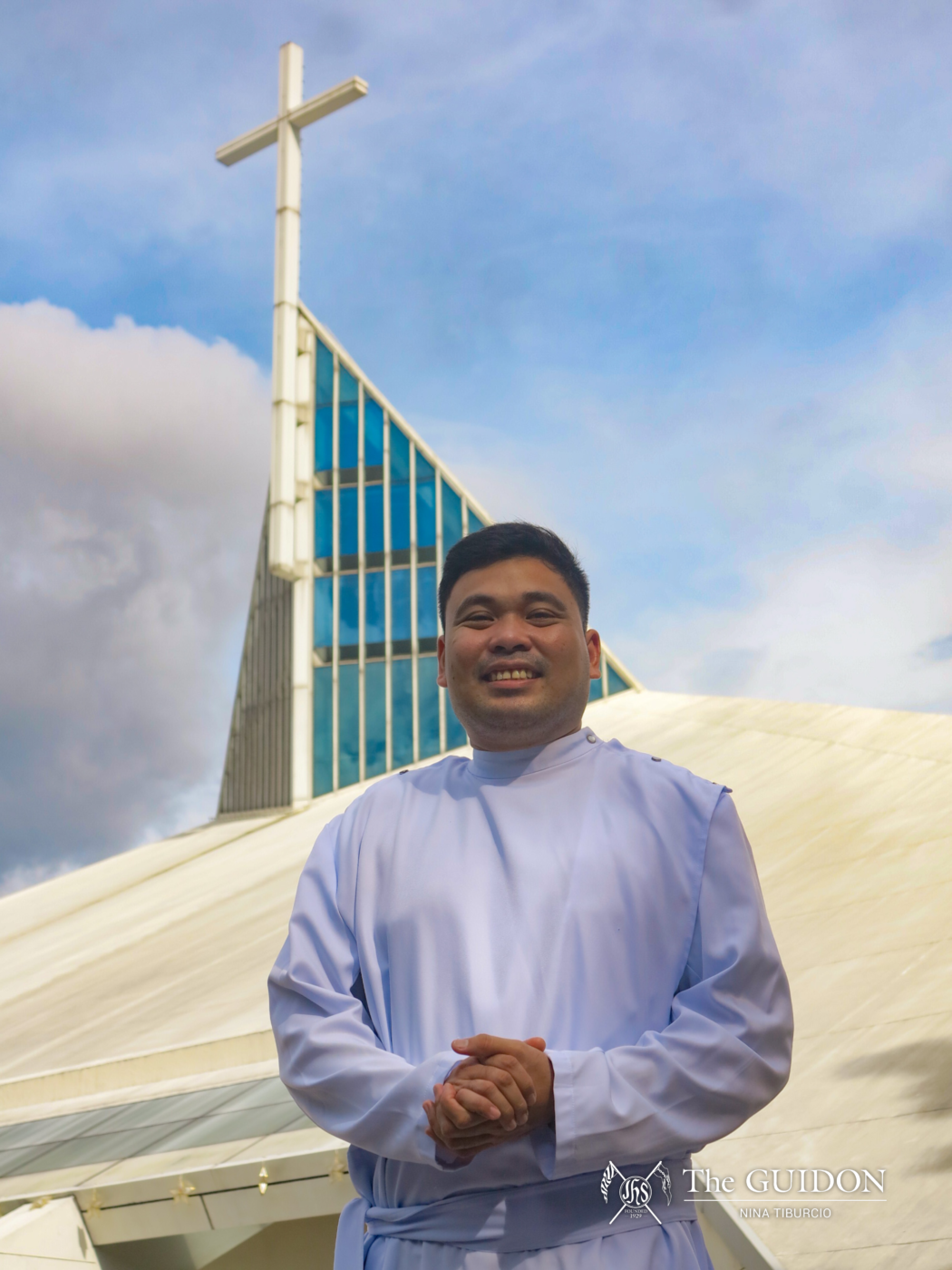
No matter the path that one may uncover as they traverse through life, love will always be glimpsed upon by curious eyes. Such is the case of two Jesuit seminarians during their youth when love was sighted and sought for.
Love in newborn eyes
A Jesuit seminarian of eight years, Br. Kenzlee Ybañez, SJ, perceives love as a blissful experience. “For me, it gives you the high of having a significant someone in your life,” Br. Ybañez says. It serves as his inspiration to do good and even share his passions with another person.
Initially, Br. Ybañez uncovered his first relationship in his third year of college, where he and his then-significant other became classmates in a certain subject. Their respective blocks—both of which were assigned in the same class—would often hang out in the university library. From an exchange of time and stories, feelings began to grow.
On one of their dates, Br. Ybañez and his then-significant other visited the Merchant Vessel Doulos Floating Bookstore, a now-retired cruise ship that held thousands of books. “[The ship] went to the port of Cebu, and we went there to buy very cheap books, which we gave to some children in an orphanage,” Br. Ybañez says. Since then, he has recognized and engraved in his heart their pure desire to share knowledge and kindness to others.
Meanwhile, the curious phenomenon of love had also urged another Jesuit seminarian of now almost three years, Br. James Ryan Seneriches, SJ, to set on a journey of further growth, learning, and discovery. “There was no concept of love [for me]. There was, maybe [from romantic movies] but it was really more of exploring, trying to see what is this courtship, ‘no? What does it feel [like]?” he shares.
Br. Seneriches first met his then-significant other in high school, where a courtship between two groups of friends blossomed. Initially, he resisted the urge to pursue her because he did not think he was good enough, but the courage brought about by love prevailed.
In the fourth year of the relationship, Br. Seneriches headed to Manila for further studies. It would then mean putting a considerable amount of distance between him and his then-significant other. To assure her, Br. Seneriches and his friends planned an unforgettable date in a packed restaurant where they serenaded the girl with her favorite songs.
With that, he rationalized this publicly bold move as a reassurance of his love. “To do this much and just to tell you that I love you, and even if we’re gonna be in a long-distance relationship for two years, I would continue to commit in this relationship,” Br. Seneriches explains.
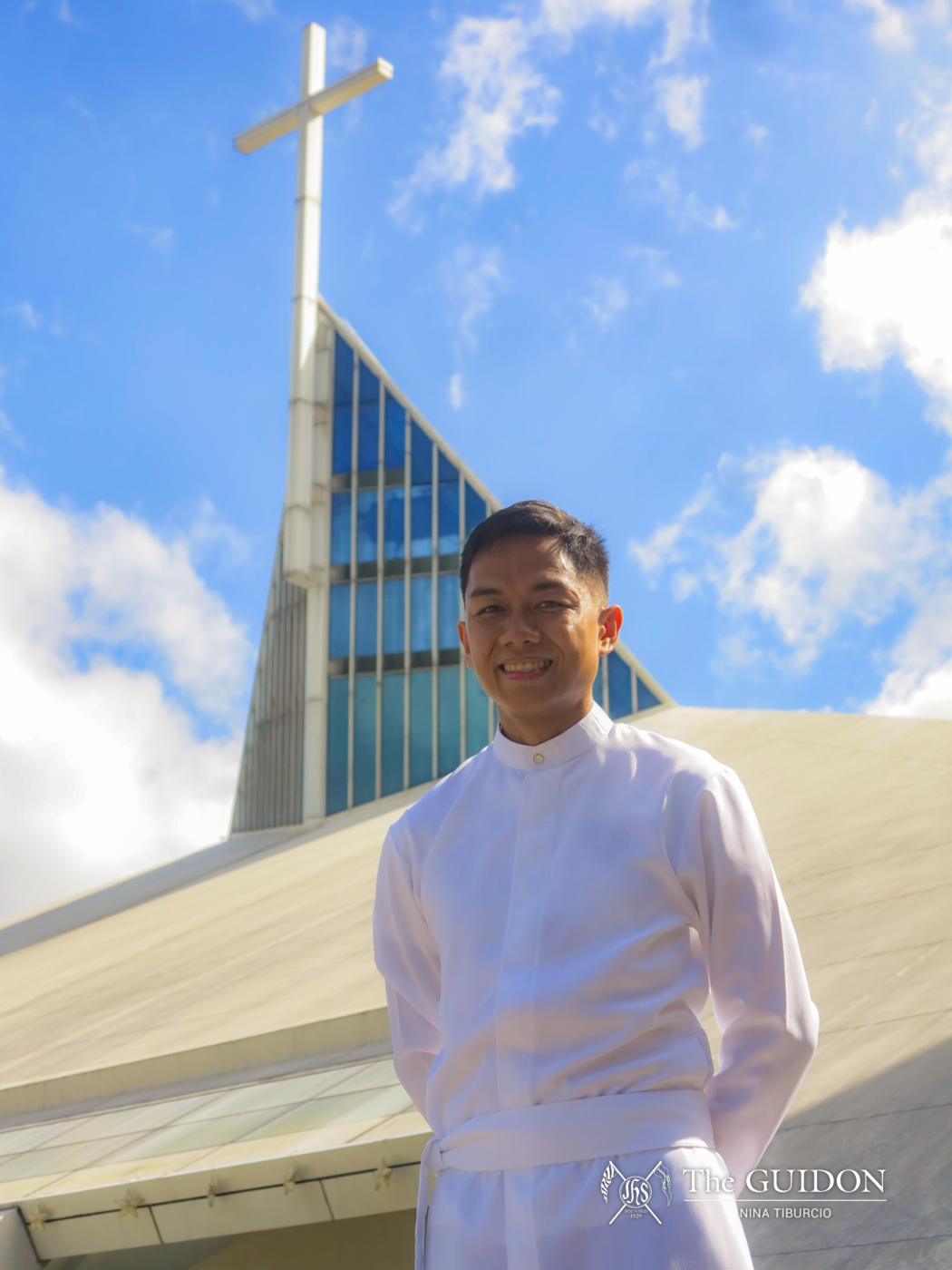
As I have loved you
Be it in life as a religious or a romantic, commitment is the cornerstone of the forging of fulfilling and worthwhile relationships. Though Ybañez admits that he had not considered marriage throughout his romance, he had a strong desire to achieve life goals with his partner and continually sustain their relationship.
For Seneriches’s relationship, the commonalities in their core values—such as their shared love for God and family—outweighed the differences that began to emerge through their romance. These agreements ended up serving as the drive behind his decision to continue committing to her.
Considering their current commitments, it may be surprising to know that neither of the seminarians seriously considered joining the Jesuits at this point in their lives. Ybañez was regularly exposed to and developed a fondness for the Benedictine priests who stayed at the Catholic schools he attended growing up. “There was a fascination, but I think it’s on the level of that—not so much of seriously wanting to be like that,” he says.
Rather than dedicate his life to religious service, the young Ybañez aimed to maximize his time in college. He pursued a career in law and experienced the joys of youth, like partying, togetherness with peers, and romance.
Seneriches harbored a similar sense of admiration for the religious as a child. He had once told his grade school teacher that he aspired to be both a priest and soldier. “I did not say that seriously, I just actually wanted to sound cool,” he shares. “What is serious, though, is that there was always a deep sense of wanting to be close to God.”
Both men’s perceptions of the religious remained stagnant through the course of their respective relationships, and their aspirations to devote their lives to the service of God continued to lay dormant.
Ybañez’s split with his then-partner came as a result of a slew of individual differences and shifts in their dynamics. Discrepancies in their faith, as well as the disagreement between their respective priorities, diminished their contact. “When I started working, she also went somewhere to study for higher studies. ‘Dun naging long-distance. Parang wala masyadong communication (That’s how our relationship became long-distance. There wasn’t much communication),” he expresses. Eventually, the two agreed to separate amicably.
On the other hand, Seneriches’ parting from his longtime lover was not as cordial. He simply attributes their breakup to his partner ceasing to see the value of their companionship. “When we broke up, it was a very difficult time for me… Everything I knew about love […] really broke down,” he laments. Still, vestiges of his feelings and love for his ex-partner lingered after their love faltered.
Embittered and at the twilight of the romantic chapter of their lives, neither Ybañez nor Seneriches could have anticipated what lay on the next page in each of their stories.
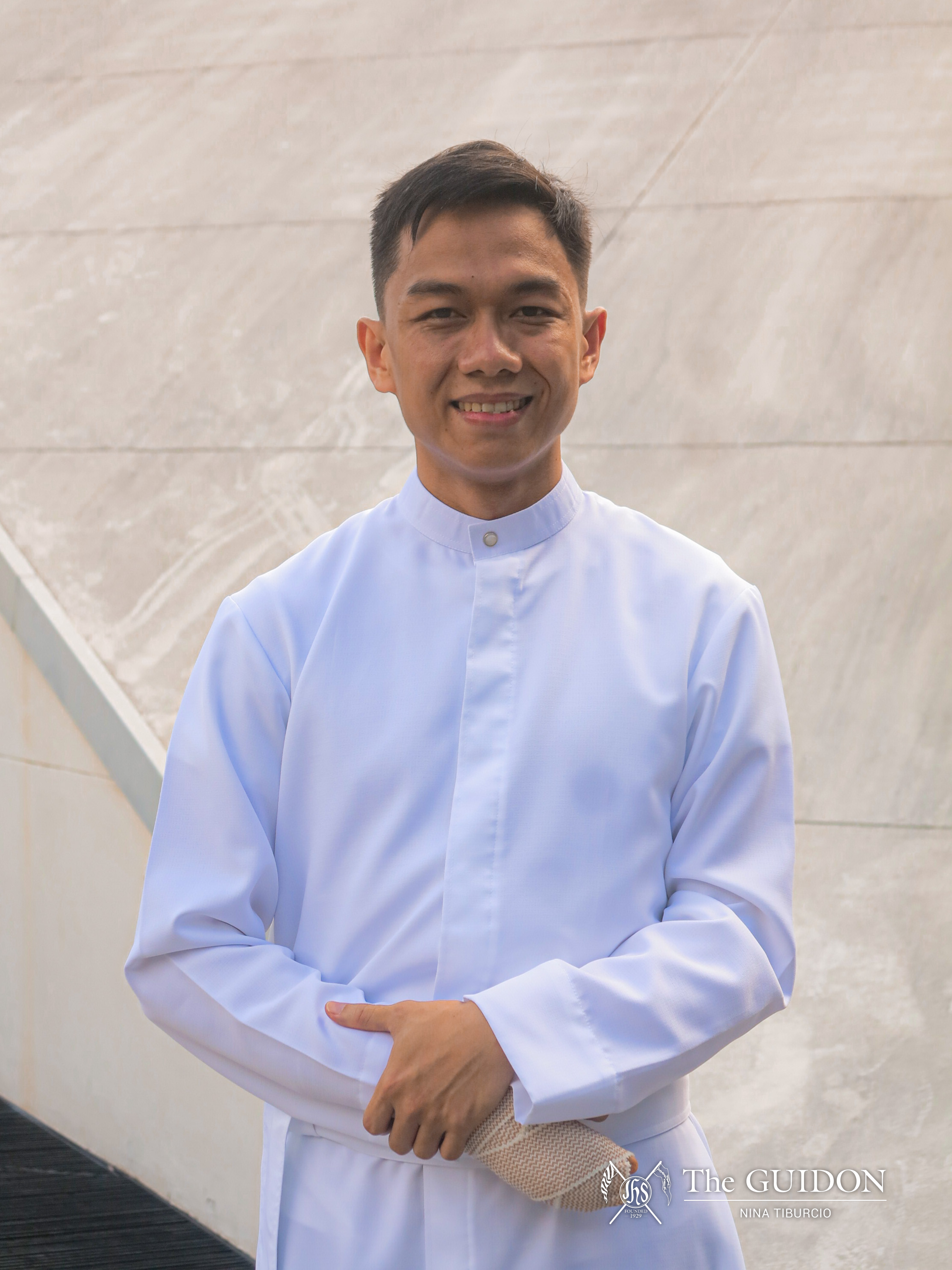
Heart and soul
In line with their current membership in the Jesuit order, both men’s fallings out served as the cannonball experiences that signaled the dawn of their foray into a special bond with God.
Seneriches believes that it was the solace and companionship provided to him by the Lord that allowed him to trudge through his lonesome spell. “There, God caught me—it was really a very complete moment of love. An unconditional sense—it’s a consolation without being cost anything else,” he describes.
For Ybañez, the divine call came fortuitously. On a rainy evening back in his hometown, Ybañez was writing a report for his non-governmental organization work when he heard a mysterious outside voice. Though he was oblivious as to its origin, he was able to decipher what it asked: “Are you still happy with what you’re doing? What do you want to do more?”
From that inquiry, his mind rolled the years back to the memory of a Jesuit poster he came across while in college. “‘Yun ‘yung una kong naisip—’yung poster. So, sabi ko, ‘Baka tinawag akong maging Jesuit.’ So, I emailed the Jesuits, and after three days, they replied, and that’s it. That’s the start (The poster was the first thing I thought of. So I said, ‘Maybe I’m being called toward the Jesuit life’),” he reveals.
Garnering years of spiritual growth and service with the Jesuits have taught Ybañez and Seneriches to see love in an entirely new light. In Seneriches’ view, love is faithful and selfless, geared toward the benefit of others without seeking return.
Indeed, one may ponder, “Where do sacred hearts go?” Ybañez’s heart goes out not only to God but to the wider Church community. “[I’ve always said that] a Jesuit life—a chaste life—is a life of inclusive relationships,” he shares.
Though vows of chastity stand in the way of vows of wedding, being religious does not bar one from the love and commitment of matrimony, Ybañez believes. “Being religious is being married to the Church. You become more available to everyone,” he concludes.
